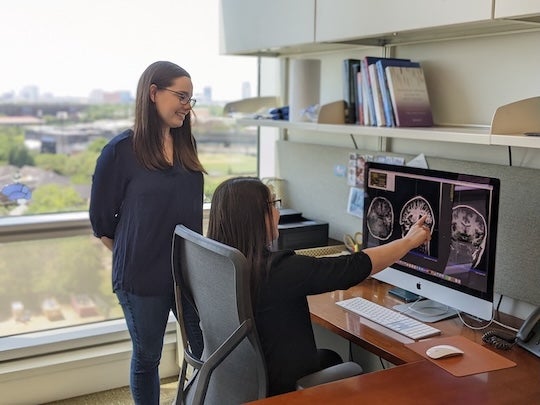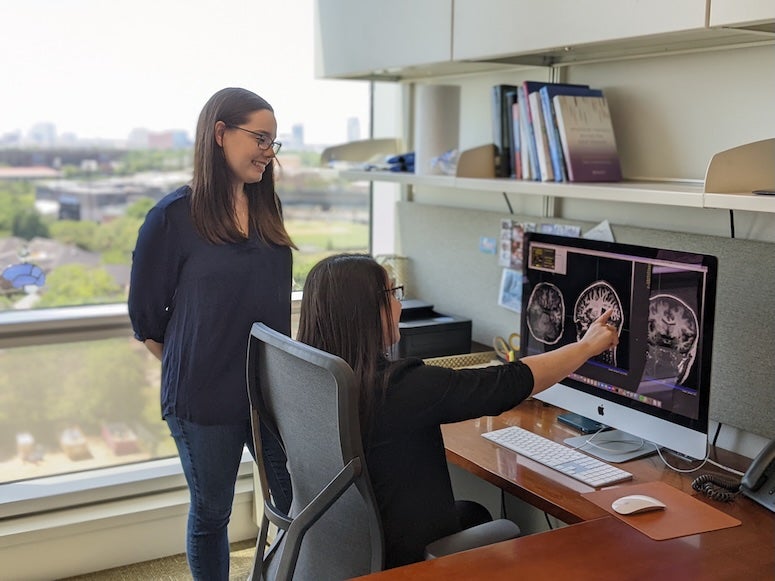We all know music can bring old memories flooding back — but can it help shape new ones?
That’s the question Rice graduate student Kayla Clark and adjunct assistant professor Stephanie Leal set out to explore. Their research, conducted at Rice and recently published in the Journal of Neuroscience, one of the field’s leading journals, zeroes in on what scientists call the post-encoding period — the short window right after we learn something, when the brain begins locking in memories.

“It’s important to look at what happens right after you’ve learned something,” Clark said. “That processing period is when your brain is doing a lot of work behind the scenes.”
In the study, participants were shown a series of everyday images, then randomly assigned to one of three groups: one listened to classical music, another heard ambient soundscapes and a third sat in silence. After a 20-minute rest, they were tested on what they remembered — both in general and in detail.
The results revealed a fascinating interaction between music, emotion and memory type.
“Moderate levels of emotional arousal predicted better memory for details — like specific features in an image,” Clark said. “People with either very high or very low arousal were more likely to remember the gist.”
That pattern reflects the Yerkes-Dodson Law, a well-known psychological theory suggesting memory performance is best at moderate levels of arousal and dips at the extremes. But this study adds a twist: different types of memory — gist vs. detail — may each have their own optimal level of emotional arousal.
Perhaps even more intriguing: the same piece of music affected participants differently. Some found it calming. Others found it energizing. Those individual emotional responses — not the music itself — were what shaped how their memories were stored.
“People rated their arousal very differently, even when listening to the same piece of music,” Clark said. “That tells us something powerful — that personalized music interventions could be used to support memory in more targeted ways.”
Clark, a graduate student in psychological sciences, led the research in the Neuroscience of Memory, Mood, and Aging Lab, with support from the School of Social Sciences, alongside her faculty mentor, Leal.
“There’s something appealing about using music to influence memory,” Leal said. “This study suggests it’s the emotional arousal — how you feel in the moment — that makes the difference.”
Leal noted that the study sheds light on the role of what happens in the brain after an experience — not just as downtime, but as a window of opportunity.
“That rest period after an event isn’t just passive,” she said. “It’s when your brain is processing and stabilizing memories — and emotional input like music may influence what gets stored.”
Both researchers see the findings as a foundation for future work, especially in clinical and therapeutic contexts.

“If we can figure out how to match the right kind of music to the right individual at the right time,” Leal said, “it opens up exciting possibilities for supporting people with memory impairments such as those with Alzheimer’s disease or depression.”
Clark is already planning to expand the study by including adults of all ages, and by incorporating physiological measures — like heart rate and pupil dilation — to deepen understanding of how music-induced arousal shapes memory.
“Music is something we all connect with,” Clark said. “And if it can help us hold on to the people and moments that matter, then that’s a powerful tool.”

